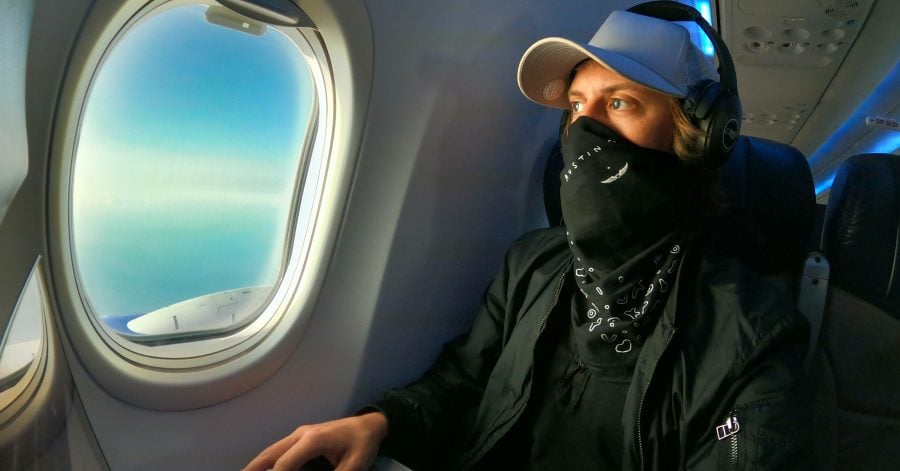At the end of September, the Senate, which is the higher Chamber of the Romanian Parliament, approved the draft law of the digital nomad visa program in the country. It was then sent to the Deputy Chamber for debates. With this initiative, Romania could have a legal instrument to attract resources, promote the country internationally, and develop the economy.
Romania might be joining other European countries, like Croatia, the Czech Republic, Estonia, Germany, Greece, Iceland, Italy, and Norway, which have launched visas for remote working.
“An advantage [for digital nomads] would be the lower cost of living, unlike other European countries or even the United States, where the cost of living is almost 50% higher. In Romania, for one person the expenses are on average less than €500 per month,” shared Vlad Craioveanu, co-founder and Business Development Manager at Impact Hub Bucharest.

How will the Digital Nomad Visa work?
The draft law was initiated by the centrist alliance USR PLUS representatives, led by MP Diana Buzoianu, back in May 2021. It was developed in collaboration with the Ministry of Research, Innovation and Digitalization, represented by the former Minister of Innovation, Ciprian Teleman, as well as experts working with the Ministry of Internal Affairs, and with the Ministry of Foreign Affairs. Buzoianu stated that she also reached out to the Croatian, Estonian, and German Embassy in Romania to discover how they implemented their visas.
Diana Anda Buzoianu has been part of the Romanian Parliament since December 2020 and has a background in law. She is 27 years old and is also a member of the Committee for the technology of information and communication. According to her website, her goals are a transparent, digitized, and connected Romania. The Recursive reached out to her for a comment but didn’t get a reply until this publication.
However, there’s still a long road until the initiative becomes a fact. The draft law may stay in the first phase of the Deputy Chamber’s process for up to 60 days. To move it along, it has to be put on the daily schedule, but it can be postponed for years if there is no interest. The current political crisis in Romania might be a factor in the way.
The initiative’s representatives define a “digital nomad” as a foreigner working for a company registered outside of the country. It could also be a foreigner who undertakes economic activity through a company registered by him/her outside of Romania and could undertake the given work remotely, by using information and communication technologies.
The target of the draft law’s initiators is to attract annually around 2000 digital nomads. The team estimates that these will likely spend a monthly average of €2K, which translates into €50M per year.
For digital nomads to live and travel in Romania and continue to work remotely for their foreign employer or their own company, registered outside of Romania, they’ll have to apply for a normal working visa. This allows them to work for 90 days and can be extended into a residence permit.
To get a Digital Nomad Visa directly, a person has to apply for it at the Romanian Embassy in their country, offer proof of the company they work for, medical insurance, and give details about where they will stay, their background, and revenue in the last six months. This has to be at least €1150 per month, which is lower than what other European countries request. For example, Georgia requests around €1600, Croatia around €2200, while Estonia asks for €3500.
“The adoption of the draft law can be one of the measures conceived within a macro package of measures for the recovery of Romania’s economic situation in the context of the economic crisis, as a result of the pandemic. The initiative aims to attract a larger number of people from third countries who will continue to work remotely in third countries, but who will spend financial resources in Romania “, Buzoianu pointed out in the first press release, back in May 2021.

What are the ecosystem players thinking?
According to the Suciu Popa law firm in Romania, if the law is approved, the flexible process of applying for the visa, along with low living costs, and a high Internet speed, could make Romania a leader in remote working. Romania has been listed on the 14th spot out of 25 top destinations for remote work according to remote.com.
Remote is a platform launched in 2019 to aid companies to find the right global talent. It says that Romania, more precisely Bucharest, is perfect for nomads interested in a safe, affordable, and boisterous nightlife city. Romania follows countries like Spain, Germany, Ireland, and Sweden in this guide.
Startup founders, like Iunieta Sandu from NO.MAD Talks, a freelancers’ community in Romania, shared with The Recursive that although she supports this initiative, she wants the Digital Nomad Visa to extend to more freelancers, not only IT specialists, like digital or content marketing professionals.
She believes that Romania has a lot to offer and describes the country as the perfect melting spot of freelancers, with over one million professionals, similar to Greece, Italy, and Poland. Here people can find support, work from the seaside or the mountains, from a big city or a remote village.
“Another benefit would be economic, digital nomads are used to relaxing, working from new places, visiting the country they choose to go. That means money spent in cafes, hubs, co-working spaces, and an increase in tourism,” concludes Sandu.
Craioveanu also believes this visa will encourage both tourism and Romania’s economy. He thinks that when the nomad flux will rise, so will co-working spaces and that this initiative can bring fresh talent to the country. He reckons that the state should collaborate with tourism players, like Booking or Airbnb, telecom firms for special offers, teachers to promote the Romanian language, and co-working spaces for networking and building communities.
While Sandu hopes that the country’s representatives would connect with freelancer communities to promote this initiative and even take Portugal as an example. Portugal inaugurated in 2020 the first European village for freelancers, titled Ponta del Sol. This is a hub by the seaside in an abandoned village. “What would it be like for abandoned villages in Romania to become the epicenter of creativity, freedom, and productivity? Where Romanian freelancers meet digital nomads to work and live together,” Sandu adds.







